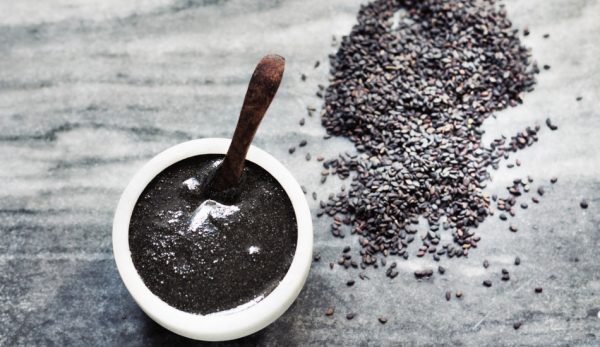Depression is currently one of the world’s biggest health concerns and disabilities. Everyone knows someone with depression, whether it’s a family member, friend, or work colleague.
Depression is common, and it needs to be talked about and understood more to remove the negative stigma. There are also lots of ways you can help others and yourself if you are suffering the symptoms of depression, which may be present alone or in a combination:
- Feeling withdrawn, isolated, and lonely
- Feeling fatigued, tired, and exhausted, wanting to sleep a lot
- Loss or gain in appetite and weight changes
- Teary and sad
- Greatly frustrated
- Feeling anxious, overthinking, and having thought patterns that are repetitive or obsessive
- Difficulty making trivial decisions or concentrating and learning new things
- Reckless or uncharacteristic behavior
- Having very low self-esteem, self-loathing, feeling as if the future is hopeless and you are useless, or that your life holds no meaning
- Having difficulty sleeping, even though you desperately need it
- Feel uninspired, loss of drive, lack of interest, and unmotivated
- Loss of sense of humor and have a very serious outlook
- Short upper respiratory breathing or feeling like your breathing is strained and shallow, rather than slow and deep

I have personally experienced depression, on and off, for many years, and know full well the impact it has on your personal and professional life, and mostly, on your self-esteem.
Fortunately, I have learned that I can make many choices in my day-to-day life that will prevent another episode of depression, or quickly turn around a mild case of the blues that could become worse if action is not taken. I would love to share what has genuinely worked for me.
But first, let’s talk about stress…
The majority of depressive episodes I have experienced, seen, read about, and heard of were exacerbated by a stressful episode. There is always stress in the body and the body is built to deal with stress. However, a very stressful event, personal loss, physical injury or disease, or mild but long-standing stress will push the body to its threshold of coping; like a dam, it will inevitably overflow.
When too much stress builds, you will begin to feel like a bundle of nerves and have a very short fuse. You can begin to feel both tired and wired at the same time — I know, I’ve been there.

Some people become teary, which is the body’s way of releasing excess stress quickly. Others become irritable and restless, wanting to let off steam by yelling or banging things about — another sign that physical activity will help the body release excess stress.
That’s why I put exercise at the top of my list! It’s the best way to manage stress build-up.
Lifesavers against depression
Exercise
If you do nothing else, exercise each and every day. Exercise has been proven time and time again to be a leading way to both prevent and treat depression. It not only actively fights depression, it makes you more resilient to stresses encountered in your everyday life — you will find that your mental outlook will be cheerier, and hardier — you will not take things so much to heart.
Relax
Your parasympathetic nervous system needs to be switched on to release the hormones that help you slow down to “rest and digest.” The most powerful exercises to help to relax you are meditation and deep abdominal breathing. Playing or listening to music are also really good ways to take some downtime.
Hydrate
Did you know that dehydration stresses your body with the release of cortisol? Drinking two liters of water a day will help your body to function at its optimum, and improve your mood to boot. Tiredness and fatigue can also be signs of dehydration.

Sleep
Are you getting enough? Tiredness will also affect your mood, behavior, and ability to learn. A sleep-in or early night might make the biggest difference if you are feeling frazzled or uneasy.
Eat well
Eating more fresh vegetables and fruit will help your body to stay alkaline, which will, in turn, help you feel more energetic. Also, a diet high in fiber supports a healthy biome, which has strong links to mental health. Avoid refined sugar, wheat, and trans fats.
Real salt of the earth
Swapping table salt for real pink, grey, or black salt will support your adrenals to balance your stress responses. Adrenal fatigue is marked by feelings of chronic fatigue and can be connected to depression. Try sprinkling on your food or drinking sole on rising.

Ditch caffeine
This was a hard one for me — a total coffee addict! Now I enjoy stable energy levels all day long, and my mind feels a lot sharper and calmer.
Quit alcohol and drugs
There is no recommended safe amount of alcohol or recreational drugs when you have depression, either mild or severe.
Eat
Keep a regular rhythm of eating as low blood sugar can affect your moods and energy levels. Don’t go hungry — pack nutritious food ready-to-go in your bag, such as hard-boiled eggs, veggie sticks, dairy dips, and nuts.

Connect and learn
Develop the attitude of the “lifelong learner,” and learn from others whenever you can. Connecting with your community with the various hobby groups will allow for this. People who feel they “belong” in their community have a higher incidence of mental health and a happier outlook compared with those who don’t.
Seek council
Share your feelings with a friend, if not for a solution, but just as a sounding board. You will feel so much better for having clarified your feelings. Talking to a professional counselor or therapist can also help you to navigate your way through the hard emotions.
Go detox
Go easy on commercial perfumes, creams, deodorants, make-up, and hair products, these will increase the toxin burden on your body. Try using some good and basic products for all-over body care, such as coconut oil, mineral deodorant, toxic-free shampoo, and essential oils for perfume.

Always take steps to block the ‘black dog’
Many people refer to depression as the “black dog.” It seems to shadow you and threatens to bite you the moment you let your guard down.
Adopting some of these tips will make a big difference to how you are feeling, even if you are currently using antidepressants — it doesn’t mean you can’t add more tools to your kit — remember the mind-body connection and a holistic approach.
The more action you take, the more resilient you will be against depression. You will also feel more empowered — a big shift in your thinking.
Rebranding the ‘black dog’

Think of that “black dog” though — don’t fear and run from it — instead use it as an analogy.
The ‘black dog’ can be re-branded as a symbol and reminder; you need to walk it every day, feed it healthy foods, look after it, teach it new tricks, give it a cuddle, and most of all, love it.
It’s hard to make a start and make the changes, but when it’s hard, I tell myself that going forward, no matter how hard, has got to be better than staying where I am.










